Frequently asked questions and answers for Thumbwheel Switches - Industrial Automation
Question
How can Spare Units be used?
Answer
Spare Units can be used to reserve space for when specification or other changes result in a change to the number of digits. Also when the time or length units display is required, characters or symbols can printed or embossed.
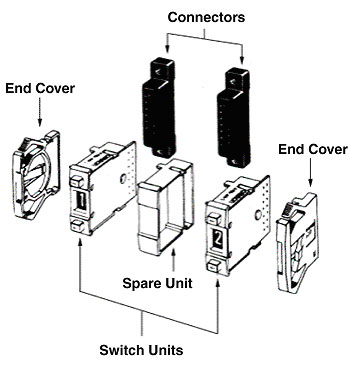
Question
What are the advantages to using connectors?
Answer
The Switch Units can be easily connected and wired, so wiring, maintenance, and inspection are simple.
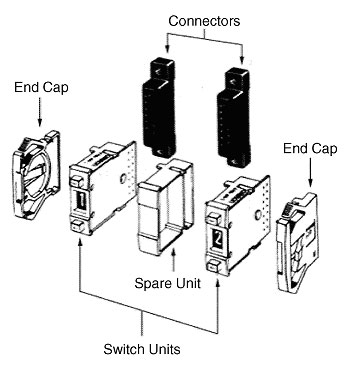
Question
What is a Switch Unit?
Answer
A Switch Unit is the main part of a switch. A separate Switch Unit is used for each digit. The number of Switch Units used in combination is the number of digits required.
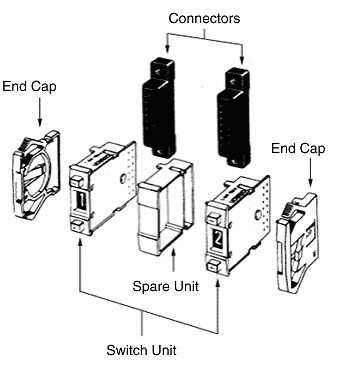
What is an End Cap?
AnswerEnd Caps are used at both ends of a Switch Unit to firmly secure each Unit to a panel. They consist of a pair of left and right caps.
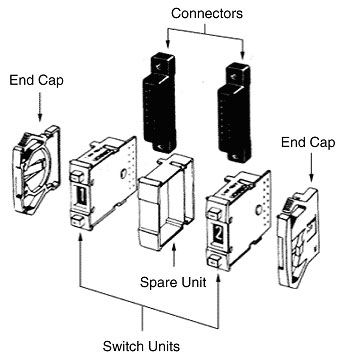
Is it possible to display only "+" and "-"?
Yes, it is.
Models with binary-coded decimal (06 models) are available that display "+, -, +, -. . ." rather than "0, 1, 2, 3, 4, 5 . . . 9".
The models are the A7[]-206-PM and A7[]-206-PM-1.
Example:
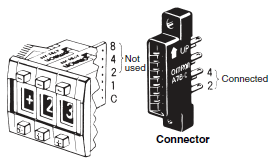
Output Code:
The signal between output terminal 1 and the COM terminal of the Thumbwheel Switch is used as the binary code.
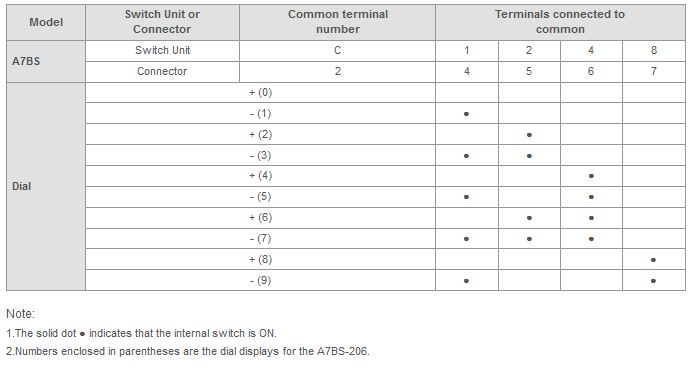
What is the configuration of the Thumb Rotary Switches?
The construction is shown in the following figure.
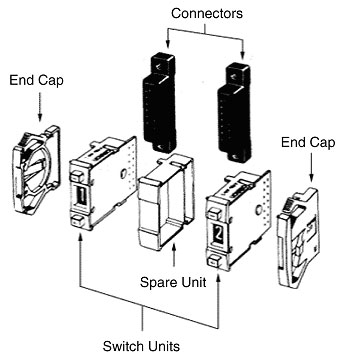
What is binary-coded hexadecimal?
Binary-coded hexadecimal uses binary to express each digit of a hexadecimal number. The following characters are used: 0, 1, 2, 3, 4, 5, 6, 7, 8, 9, A, B, C, D, E, F.
Examples:
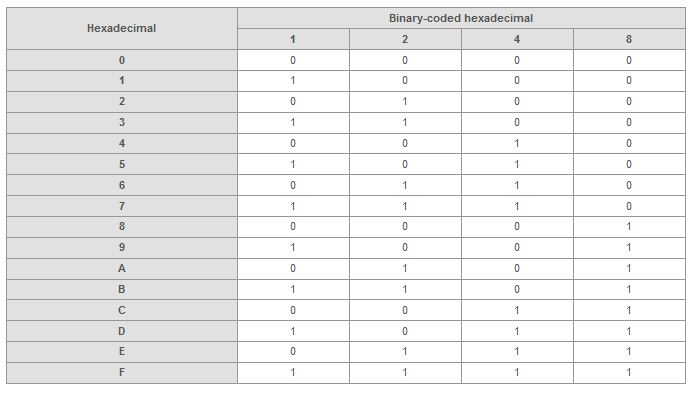
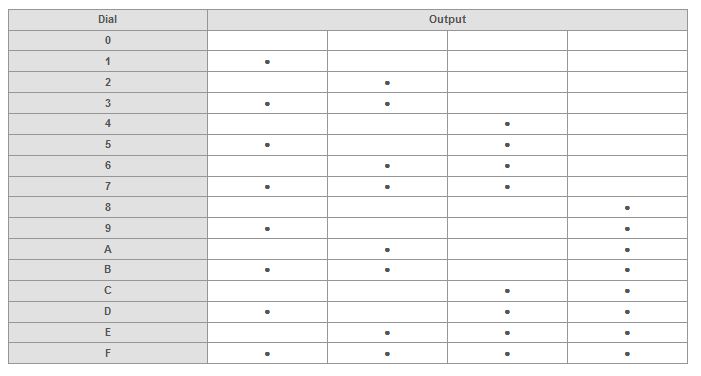
What output signals do the Thumbwheel Switches supply in the process of switching numbers?
Output signals which the Thumb Rotary Switches supply in the process of switching numbers are indefinite.
Can we set the digit of the Thumbwheel Switches to be dialed only in the range from 0 to 3?
(1) Any number can be set with the models equipped with external stoppers.
(2) The models equipped with internal stoppers are also available.
Stoppers are attached when the units are assembled in the factory.
The position where stoppers are attached cannot be changed. They are only available by order.
Add the suffix -S[][]to the model number, specifying the range in the blanks.
What is binary-coded decimal?
Binary-coded decimal (BCD) uses binary to express each digit of a decimal number.
Examples:
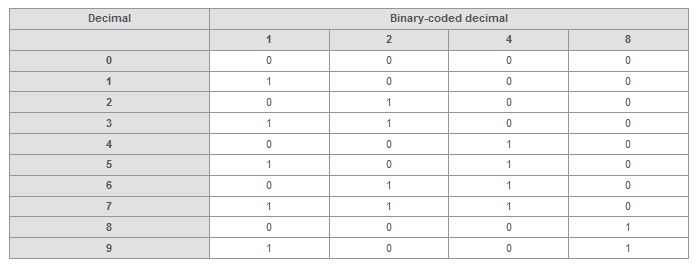
Display on Thumbwheel Switch
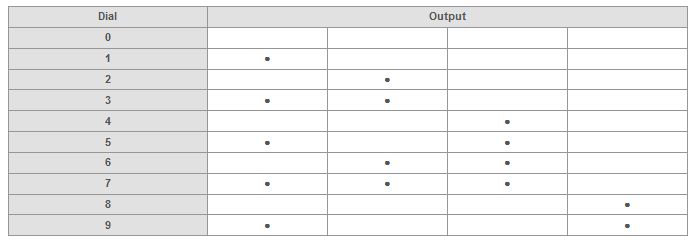
Do the End Caps come included with the Switch?
The End Caps are sold separately in a set consisting of a left cap and a right cap. Take this into account when placing an order.
Example: A7B-M End Caps for A7BS Thumbwheel Switches
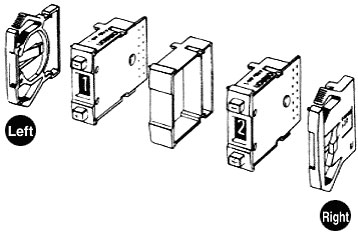
What are Switches with a Component-adding Provision?
The component-addition provision allows resistors or diodes to be inserted in the circuit before the output terminal.
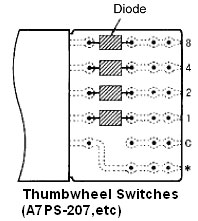
You can use terminals for the component-adding provision as ordinary solder terminals by using a conductor or similar means to short-circuit the appropriate locations instead of using resistors or diodes.